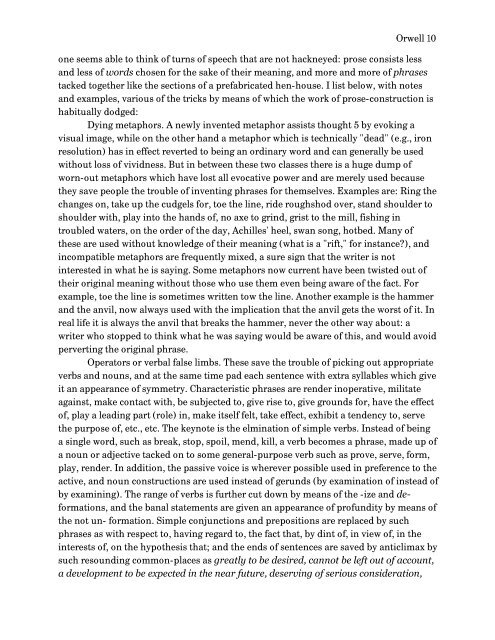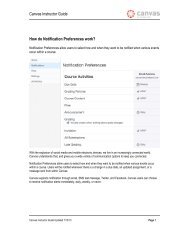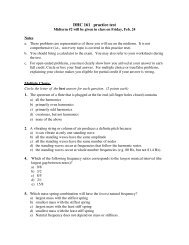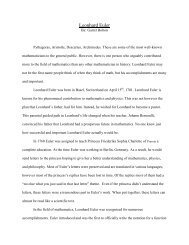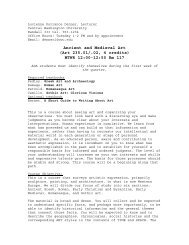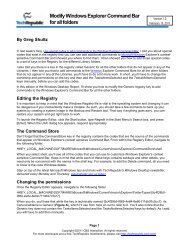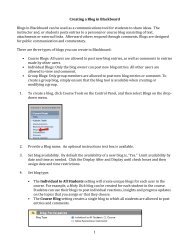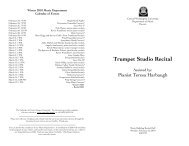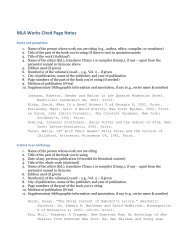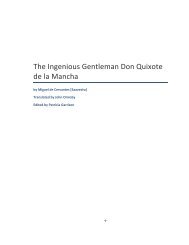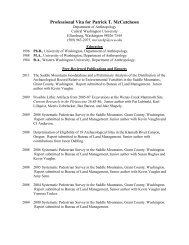THE COURAGE OF TURTLES - Central Washington University
THE COURAGE OF TURTLES - Central Washington University
THE COURAGE OF TURTLES - Central Washington University
Create successful ePaper yourself
Turn your PDF publications into a flip-book with our unique Google optimized e-Paper software.
Orwell 10<br />
one seems able to think of turns of speech that are not hackneyed: prose consists less<br />
and less of words chosen for the sake of their meaning, and more and more of phrases<br />
tacked together like the sections of a prefabricated hen-house. I list below, with notes<br />
and examples, various of the tricks by means of which the work of prose-construction is<br />
habitually dodged:<br />
Dying metaphors. A newly invented metaphor assists thought 5 by evoking a<br />
visual image, while on the other hand a metaphor which is technically "dead" (e.g., iron<br />
resolution) has in effect reverted to being an ordinary word and can generally be used<br />
without loss of vividness. But in between these two classes there is a huge dump of<br />
worn-out metaphors which have lost all evocative power and are merely used because<br />
they save people the trouble of inventing phrases for themselves. Examples are: Ring the<br />
changes on, take up the cudgels for, toe the line, ride roughshod over, stand shoulder to<br />
shoulder with, play into the hands of, no axe to grind, grist to the mill, fishing in<br />
troubled waters, on the order of the day, Achilles' heel, swan song, hotbed. Many of<br />
these are used without knowledge of their meaning (what is a "rift," for instance?), and<br />
incompatible metaphors are frequently mixed, a sure sign that the writer is not<br />
interested in what he is saying. Some metaphors now current have been twisted out of<br />
their original meaning without those who use them even being aware of the fact. For<br />
example, toe the line is sometimes written tow the line. Another example is the hammer<br />
and the anvil, now always used with the implication that the anvil gets the worst of it. In<br />
real life it is always the anvil that breaks the hammer, never the other way about: a<br />
writer who stopped to think what he was saying would be aware of this, and would avoid<br />
perverting the original phrase.<br />
Operators or verbal false limbs. These save the trouble of picking out appropriate<br />
verbs and nouns, and at the same time pad each sentence with extra syllables which give<br />
it an appearance of symmetry. Characteristic phrases are render inoperative, militate<br />
against, make contact with, be subjected to, give rise to, give grounds for, have the effect<br />
of, play a leading part (role) in, make itself felt, take effect, exhibit a tendency to, serve<br />
the purpose of, etc., etc. The keynote is the elmination of simple verbs. Instead of being<br />
a single word, such as break, stop, spoil, mend, kill, a verb becomes a phrase, made up of<br />
a noun or adjective tacked on to some general-purpose verb such as prove, serve, form,<br />
play, render. In addition, the passive voice is wherever possible used in preference to the<br />
active, and noun constructions are used instead of gerunds (by examination of instead of<br />
by examining). The range of verbs is further cut down by means of the -ize and deformations,<br />
and the banal statements are given an appearance of profundity by means of<br />
the not un- formation. Simple conjunctions and prepositions are replaced by such<br />
phrases as with respect to, having regard to, the fact that, by dint of, in view of, in the<br />
interests of, on the hypothesis that; and the ends of sentences are saved by anticlimax by<br />
such resounding common-places as greatly to be desired, cannot be left out of account,<br />
a development to be expected in the near future, deserving of serious consideration,


